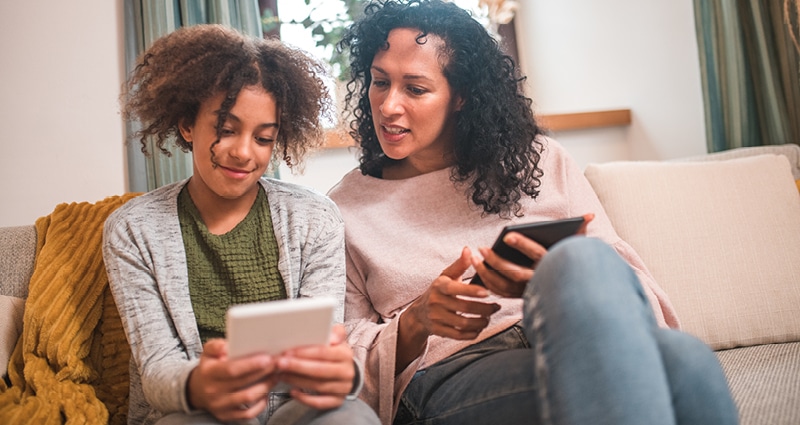In today’s digital age screens are an integral part of daily life for many teens and tweens through technology in school, social media use and other apps on smart phones.
While screen time has value in education, connection and entertainment, excessive screen time can have negative mental health consequences.
Nicholas George, MD, pediatrics and internal medicine physician with Our Lady of Lourdes Health, shares the advice he gives parents about screen time as tweens and teens begin to use social media.
Becoming Good Cyber Citizens
Parents should be mindful of their own screen time and cell phone use, serving as good role models for their kids and modeling healthy balance when using technology. Sharing your online presence and showing how it aligns with your behavior and presentation in real life can help children learning to use social media follow in those footsteps.
Open and ongoing conversations about healthy online habits are key, and parents should know where and when kids are on their screens. Those regular talks can clue in parents about potential cyberbullying and other risks that bleed into “IRL” or in real life. Consider a family social media agreement to set ground rules on using such apps.
Mental Health Risks with Excessive Screen Time
Research has shown that excessive screen time, especially before bedtime, can disrupt sleep. This can lead to fatigue, decreased concentration and irritability.
Spending excessive time on screens can lead to social isolation and decreased face-to-face communication. This can impact the ability to build and maintain relationships.
Studies have linked excessive screen time to increased rates of anxiety and depression in teens and tweens. The constant stimulation of screens and the constant connection to social media can be overwhelming and contribute to feelings of anxiety and depression.
Excessive screen time can lead to poor academic performance, especially when screens are used during study time. This can lead to feelings of frustration and decreased self-esteem.
Steps to Mitigate the Risks
To mitigate these risks to their child’s mental health, parents and caregivers should consider these steps:
- Limit the amount of time your teen or tween spends on screens each day. Encourage them to engage in other activities such as reading, exercise, and spending time with friends and family.
- Encourage face-to-face communication with family and friends. Plan activities that involve socializing and interacting with others.
- Establish a regular sleep routine and avoid screens before bedtime.
- Monitor social media use and encourage regular breaks from social media to promote mental health.
If parents do feel like their child is having issue with sleep, mood swings or feeling depressed or isolated, make an appointment with your pediatrician or primary care provider.




